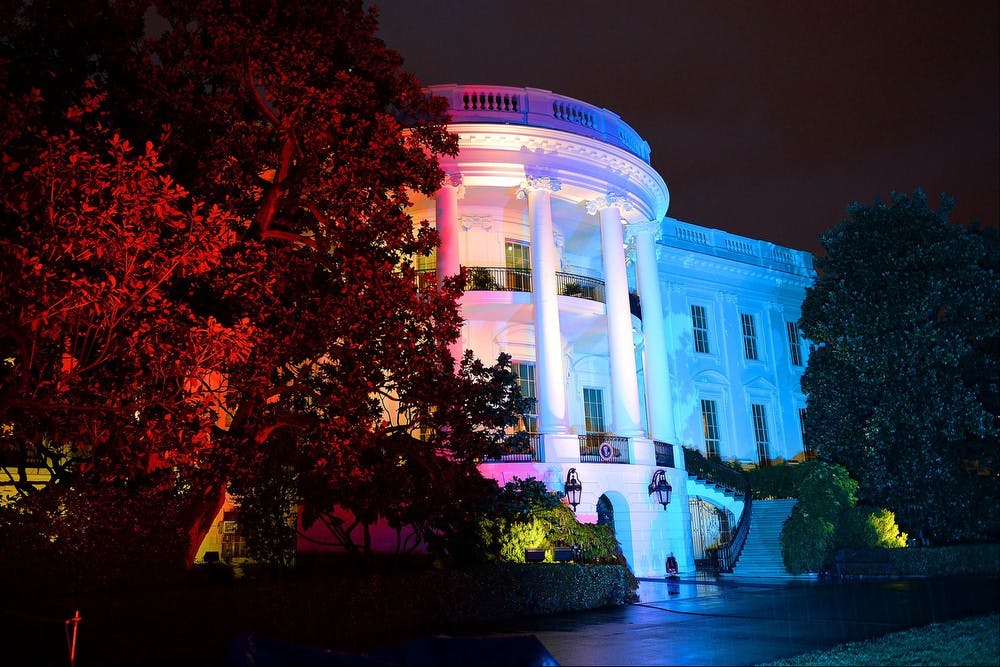ASU postdoctoral scholar Amanda Tachine has just returned home after a short trip to a place few people are invited: The White House.
Several weeks ago, Tachine was told that she would be honored for her work developing a mentorship program called “Native SOAR” in a phone call from none other than the office of the first lady.
Native SOAR is a mentorship program focused on Native American student success in which college graduate students mentor undergraduates, and those undergraduates mentor high school students.
“I’ve learned a lot from our students in terms of understanding a little bit more about the challenges that native youth has in terms of going to college,” Tachine said.
According to the American Indian College Fund, while more Native American young people are attending college, they still account for less than one percent of bachelor’s degree attainment in the U.S.
Tachine developed the Native SOAR program while working on her doctorate at UA, and she said it has been very successful so far.
Tachine said the program began to draw attention after a video was submitted to the First Lady’s Reach Higher Initiative, which is what led to Tachine’s nomination for this “Champions of Change” award ceremony among ten other women.
The Champions of Change program was designed by the White House to honor individuals making positive changes in their communities, and this ceremony focused on empowering young women to realize their leadership potential.
The ceremony took place on Sept. 15, and featured several notable female speakers from the White House, NASA, the Smithsonian and more.
“It was just such a rewarding experience,” Tachine said. “Something I would have never imagined would occur.”
Tachine was able to bring her entire family to Washington, D.C. to witness the event, and she said the joy in seeing her children be able to play on the White House grounds still has her in shock.
Tachine said that while she felt tremendously honored and appreciated by the White House officials, there was more to the message.
“I felt like the other message is that we have a responsibility to continue to do the work,” she said. “My take away is that they were very grateful in honoring us, but we need to continue to do the work that we’re doing.”
Kyle Harvey was an undergraduate mentor in the Native SOAR program, and said his experience was incredibly rewarding. Harvey said he was able to develop a rich relationship with a high school student whom he later guided into applying for college and enrolling at a university, despite the direction she once lacked.
Harvey said he would like to develop a more long-term mentorship program in order to extend the benefits Native American students receive from having guidance throughout their high school and college years.
“Just seeing all of (Tachine’s) hard work benefit so many other people — that motivates me to do something similar,” he said.
Tachine has continued her work advocating for Native American students by coming to ASU to work at the Center for Indian Education where she works with Bryan Brayboy, who is the director of the center and the special adviser to President Crow on American Indian Affairs.
“A part of what she’s doing is helping me think pretty seriously about the way in which ASU can best meet the needs of American Indians,” Brayboy said.
Brayboy had been aware of Tachine’s work as a graduate student, and it was this that drew him to recruit her to come work at the center.
Brayboy said that ASU is privileged to have someone as forward-thinking as Tachine working at the center and that no one is as proficient in setting the terms of how to help Native students succeed than she is.
“She really is a gift,” he said. “She’s thinking about really complicated issues in nuanced and important ways, and she also happens to be an unbelievable decent human being in person.”
Related Links:
ASU celebrates Native American Heritage during November
ASU strikes agreement with San Carlos Apache Tribe to open college on Native American land
Reach the reporter at icastil3@asu.edu or follow @isabella_m_cast on twitter
Like The State Press on Facebook and follow @statepress on Twitter




